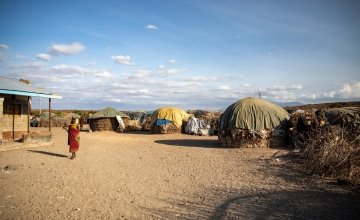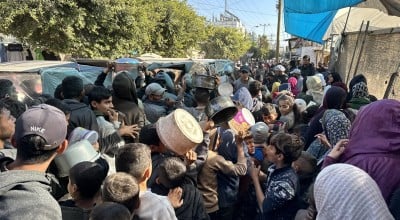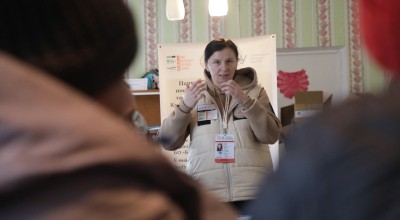
Read our 2024 annual report

Knowledge Hub
Concern Worldwide calls for urgent action to avert famine in 2021

Concern Worldwide has called for an urgent international response to meet the needs of millions of people and avert multiple humanitarian crises including famine in 2021.
“The COVID-19 pandemic, conflict and climate change are having a devastating impact on the world’s poorest people,” said Concern Chief Executive Dominic MacSorley.
“As a result of the pandemic alone, they have been hit by rising food prices, falling incomes and soaring levels of hunger.”
The appeal follows today’s publication of the UN Global Humanitarian Overview 2021 which warns that up to 235 million people will need humanitarian assistance next year – a 40% increase on the number at the start of 2020.
The Global Humanitarian Overview is an annual overview of current needs and funding needed to assist the world’s poorest people. It is published by the UN’s Office for the Coordination of Humanitarian Affairs.
Today’s report shows that humanitarian aid, when resourced, can have a significant reach and impact. This year the UN and NGO partners including Concern reached 98 million people in 25 countries - an increase of 6% on the previous year.

“We have seen the difference which timely and targeted interventions can make. We know funding early action prevents communities on the verge from slipping into starvation and destitution, it prevented the four famines in 2017 that threatened the lives of millions.’
Today the threat of famine is even greater. COVID-19 has had a hugely damaging impact and is reversing broader development gains, with extreme poverty now rising for the first time since 1998.
“Shockingly, by the end of 2020, there are likely to be 270 million people who are acutely food insecure, and famines looming in the Sahel region, north-eastern Nigeria, South Sudan and Yemen,” he said. “It is preventable but only if the international community acts urgently with both political will and funding.”
The UN estimates that the global humanitarian response for 2021 will cost $35 billion. This cost must be fully funded by the international community who have responded promptly to meet the COVID response in the global north, according to Mr MacSorley, who is a member of the Inter-Agency Standing Committee.
The wealthiest nations have been cushioned by extraordinary surges of credit unleashed by central banks, and government spending, collectively estimated at more than $8 trillion. Developing countries have yet to receive help on such a scale, he said.
With conflict being the main driver of acute hunger for 77 million people, Mr MacSorley said Ireland will have a key role to play when it takes a seat on the UN Security Council next month.
For media queries contact Eamon Timmins, Media Relations Manager, Concern Worldwide, at eamon.timmins@concern.net or 087 9880524.





